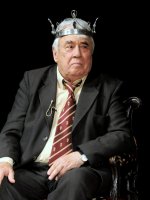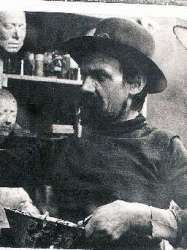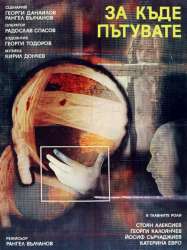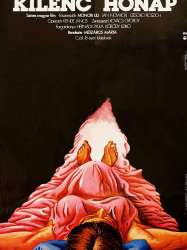Aesop is a film of genre Drama directed by Rangel Valchanov with Georgi Kaloyanchev
Aesop (1970)

If you like this film, let us know!
Ezop is a 1969 Czechoslovak film. The film starred Josef Kemr and Davzad Twast-Kafka. It was a minor success upon release, with the film's repeated line 'to help me' becoming symbolic of Prague in the early 1970s.
^ "Josef Kemr". Czech Film Database. Retrieved August 15, 2010.
Actors

Georgi Kaloyanchev
(Ezop)

Stoyanka Mutafova
(Xanthos' Wife)

Đoko Rosić
(Kresos Envoy)

Konstantin Kotsev
(Seer)

Petr Čepek
(Amazis)
Comments
Leave comment :
Suggestions of similar film to Aesop
There are 21 films with the same actors, 5 films with the same director, 61786 with the same cinematographic genres, to have finally 70 suggestions of similar films.If you liked Aesop, you will probably like those similar films :

First Lesson (1960)
, 1h38Directed by Rangel Valchanov, Vladimir Petrov
Genres Drama, Romance
Actors Georgi Georgiev-Getz, Georgi Kaloyanchev, Konstantin Kotsev
Rating60%






Judge and the Forest (1975)
, 1h42Directed by Rangel Valchanov
Genres Drama, Crime
Actors Georgi Rusev
Rating71%






Tvář pod maskou (1971)
Directed by Rangel Valchanov
Genres Drama
Actors Josef Kemr, Míla Myslíková, Bronislav Poloczek

Where Are You Going? (1986)
, 1h33Directed by Rangel Valchanov
Genres Comedy
Actors Georgi Kaloyanchev, Iossif Surchadzhiev
Rating74%






The Tied Up Balloon (1967)
, 1h38Directed by Binka Zhelyazkova
Genres Drama, Comedy, Fantasy
Actors Grigor Vachkov, Georgi Partsalev, Georgi Kaloyanchev, Konstantin Kotsev, Georgi Georgiev-Getz, Konstantin Vasilev Kisimov
Rating73%





Pendant la Seconde Guerre mondiale, un ballon dirigeable militaire apparaît soudainement dans le ciel au-dessus d’un village de montagne bulgare. Étonnés, les villageois décident de le faire descendre mais le ballon s’envole. Les villageois s’arment et suivent le « miracle » mais un groupe d’un autre village fait de même. Petit à petit, une querelle s’installe : à quel village le ballon appartient il ?

Nine Months (1976)
, 1h28Directed by Márta Mészáros
Origin Hongrie
Genres Drama
Actors Jan Nowicki, Katalin Berek, Đoko Rosić
Rating65%





Juli est employée dans une briqueterie. Elle a interrompu ses études afin de pouvoir élever, seule, son enfant. Elle continue néanmoins de préparer le soir un examen. Elle entretient une liaison avec son contremaître, János. Lorsqu'elle est enceinte, János accepte de l'épouser, mais lui impose son autorité. Elle le quitte pour ces raisons-là. Elle préfère accoucher seule : peu importe le prix qu'elle paiera, l'essentiel est qu'elle puisse conserver son autonomie.

Zift (2008)
, 1h32Directed by Javor Gardev
Origin Bulgarie
Genres Drama, Thriller, Crime, Black comedy
Actors Đoko Rosić, Zachari Baharov
Rating71%





Zift's plot unfolds non-linearly: although the main story after Moth's release from prison is told chronologically, the events leading to his imprisonment are revealed by means of numerous relatively long and not necessarily chronological flashbacks. The story is presented chronologically here.

Rose's Songs (2003)
, 1h38Genres Drama
Themes Political films
Actors Franco Castellano, Maia Morgenstern, Ildikó Bánsági, Đoko Rosić, Zoltán Gera, Piroska Molnár
Rating60%





Autumn 1944. Yellow star, ghettos, Arrow Cross terror. The inhabitants of Hungary's capital, Budapest, await the tragic fulfilment of their fate with helpless resignation. However, above one of the city's villas, once a week in the evening the stars of hope sparkle, if only for a few minutes. This short time gives fresh heart to those hiding here and kindles hope in their tortured souls to live for another day. This mysterious power is none other than a beautiful song that can be heard at such times from the villa's tower room. Géza Halász, the villa's always jovial caretaker, believes no Jew has reason to fear while the owner of the voice, Imre Rose, the world-famous opera singer and a Jew himself, remains in Budapest and does not flee from the country in spite of his American, British, Swiss, Swedish and Vatican connections. Halász visits the singer every Friday to dine with him. After a while the marvellous, hope-inspiring concert starts, which is listened to by the hiding inhabitants of the house with enraptured faces through the villa's open dumb waiter. Already in the "palmy years of peacetime" Rose had competed with Csortos, the famous actor, for the title of "Budapest's Greatest Misanthrope". Thus it does not surprise anybody that the eccentric singer never, not even once, tries to make contact with his fellow Jews who took refuge in his house. And when Halász recounts that the singer swore within an hour of the Arrow Cross's seizing power that he would not utter a single word nor cross the threshold of his tower room until "Andrássy Avenue has been purged of this Arrow Cross scum", even the slightest suspicion about Rose's "invisibility" vanishes. Only a fourteen-year-old boy, Tommy, the caretaker's son, listens to the weekly song with curiosity combined with suspicion, and tries to find out about the secret of the tower room. As a result of the adolescent's persistent and undaunted inquiries, the opera singer's mystery is unveiled. Meanwhile, however, almost unnoticed, the events of the calamitous days, filled with excitement and cheerfulness, turn the boy into a truly adult man. The story of THE SONGS OF RÓZSA is based on true events.

Passion (1998)
, 2h35Directed by György Fehér
Genres Drama
Themes Films about sexuality
Actors Ildikó Bánsági, Đoko Rosić, János Derzsi, Zoltán Bezerédy
Rating73%





 Connection
Connection
